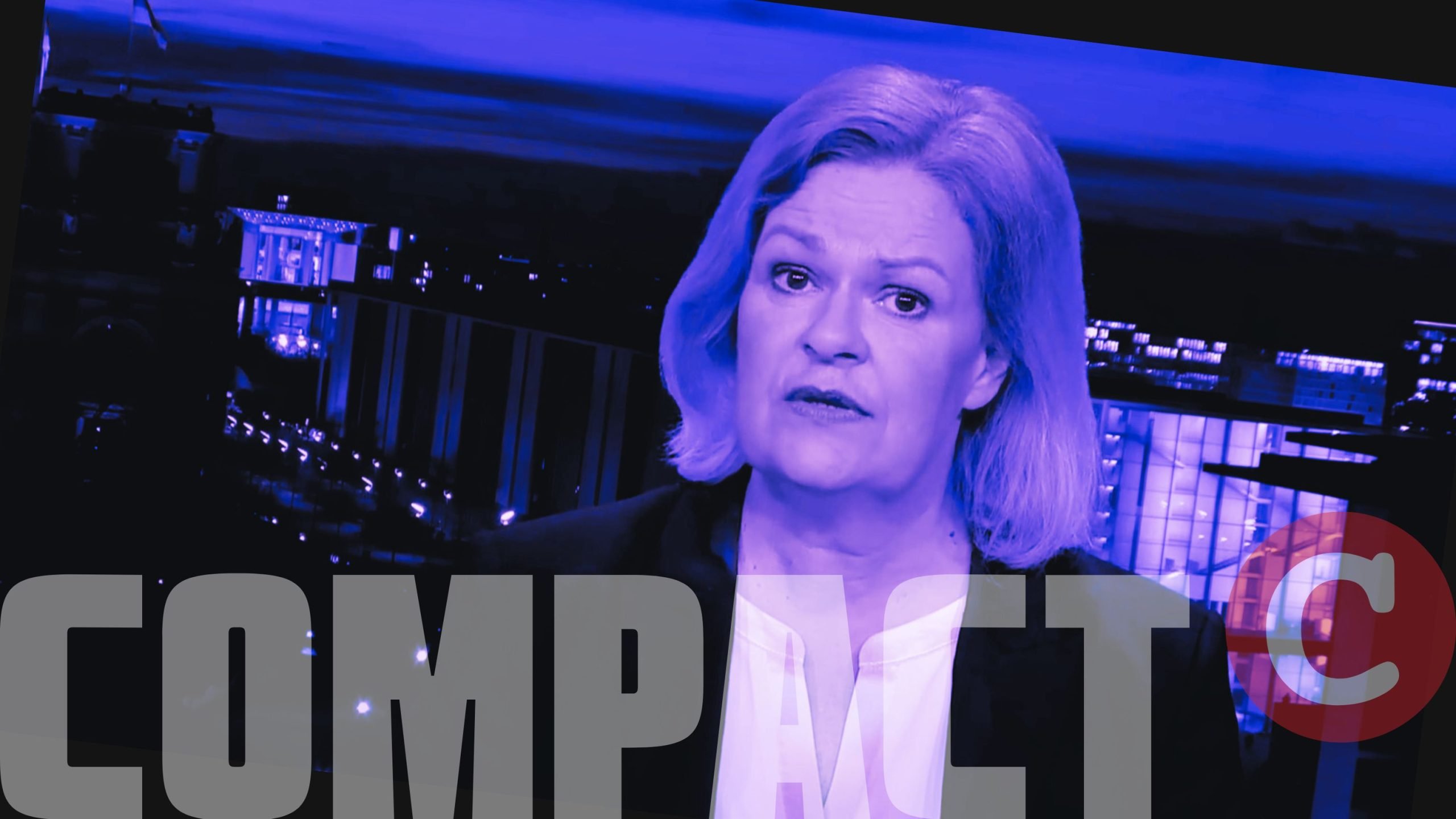Germany’s Federal Administrative Court has struck down the Interior Ministry’s controversial ban on Compact magazine, ending a legal battle that began after an extraordinary and unprecedented move by former Interior Minister Nancy Faeser to silence one of the country’s most outspoken right-leaning publications.
The prohibition, enacted last year, was enforced through early morning police raids targeting Compact staff, the wholesale seizure of the magazine’s property, and a categorical ban on disseminating any of its symbols.
Faeser’s ministry attempted to frame the initial reversal as a “heavy blow against the far-right scene,” releasing a statement that accused Compact of “spiritual arson” and intent to overthrow democracy, rhetoric that leaned more on inflammatory accusation than constitutional reasoning.
Jürgen Elsässer, the magazine’s editor-in-chief, contested the ban immediately, and the court initially suspended the prohibition during its review.
The final verdict not only invalidates Faeser’s actions but delivers a significant rebuke to the idea that government ministers should wield the power to unilaterally dismantle media outlets.
Yet the court’s decision offers little comfort for broader press freedoms in Germany.
Although Compact prevailed, the ruling stopped short of protecting media institutions from similar future interventions.
The court maintained that the Vereinsgesetz, a law ostensibly aimed at outlawing anti-constitutional organizations, can indeed be applied to press outlets, even those engaged in political publishing.
That precedent remains intact and it keeps open the door for further state action against disfavored speech.










